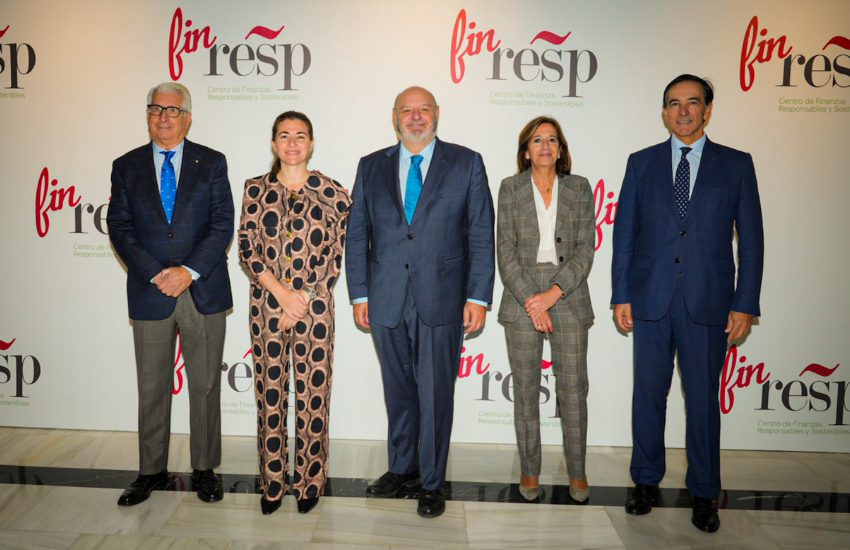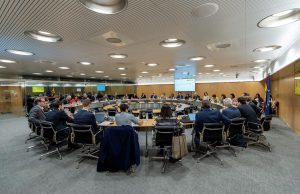The financial sector plays a crucial role in the company, among others, for its skills to guard the savings of families and companies, manage its financial and investments operations, and protect to the people and its material goods via the insurance. In Spain, last year, its activity represented more than 5% of the Spanish economy in terms of Gross Added Value and it used to more than 200,000 people.
Its contribution to the national economy was reflected in a financial asset management valued at 5.2 trillions of euros in 2023, an amount higher than the country' GDP as a Germany, India or Japan, and it guarded more than 4 family euro trillions, companies, organisations and institutions Spanish in different saving instruments and investment. This figure would be equivalent to 1.5 times the financial richness of the Spanish families at the close of 2023.
In addition, the financial sector contributed to the transformation of the Spanish economy towards a sustainable model and more digitised, as well as to the cohesion and social development of the country. In this way, in 2023, the banking went person responsible for one of each four euros issued in green bonds, social and sustainable in Spain. The insurance, furthermore, protected to people, families and companies when dealing with almost 3,600 a day provoked catastrophes for climatic events, and the assets with criteria of sustainability of the investment funds and pension plans were increased until 162,065, 23% more than at the end of 2022.
These are some conclusions and details that are extracted of the Social Memory of the Financial Sector 2023, presented by FINRESP, the Centre of Responsible Finances and Sustainable of Spain, together with its founding organisations – AEB, CECA, INVERCO, Unacc and UNESPA –, that represent to around 500 companies of the financial sector. FINRESP has presented the document in an event held in Madrid, where José María Méndez, chairman of the organisation, offered an initial intervention in which wanted do mention to the long-suffering catastrophe because of the DANA in peninsular the east and especially in the Valencian Community, regretting the loss of human lives and showing the willingness of the financial sector to collaborate to support to the affected communities.
During its discourse, Méndez underlined that “from the financial sector want sum us to the enormous samples of national solidarity and international that we have observed these days before these devastating facts. Our companies are carrying out valuable initiatives solidarity and from the associations are collaborating with the authorities in the starting up of regulatory measures that they mitigate the impact of the DANA in families and SMEs. After a long night of work, today a Royal Decree-Law is being approved that gives coverage to the initiatives of banking associations in the field of the moratoria, guarantees and area of the Code of Good Practice. Would like do special mention also to the fast reply of the sector insurer and to the role of the Consortium of Compensation of Insurance, that they are working in a tireless way for addressing the damages and make possible as soon as possible that the affected communities go out moves forward in this situation so painful.»
The event also had the round table «The role of the investment, the financing and the assurance in the sustainable transition and fair», moderate by Pedro Guerrero, adviser of Economic and Financial Issues of the Permanent Representation of Spain before the EU, that it tackled topics as the adoption of different stock lines in matter ESG by companies and institutions, as well as its alliances. The table had Ana Sainz's share, Fundación's BEINGS Managing Director, that it pointed out that «the regulation around the sustainability in recent years has increased, with great demands in the financial sector. The key will be manage the details to achieve a positive«impact. In turn, Luis Martí, deputy chairman of the Group Spanish for the Green Growth and Public Policies and Regulation director of ACCIONA, emphasised «the energetic transition is received as a cost and not as an opportunity for the companies. The objective is help to that they integrate the sustainability in its strategies«.
Furthermore, Jerusalem Hernández, Sustainability and Good Governance member of KPMG Spain, presented the main conclusions of the report, specifying the advances and challenges that confronts the industry in sustainability and social responsibility terms.
Creation of value from the activity
Between the magnitudes that are specified in the Social Memory of the Financial Sector 2023 the granting of 450,985 million euros is found in new financing for homes and companies in 2023, equivalent to three times the resource for Spain of the Mechanism for the Recovery and the Resilience (MRR) of the European Union. Of this amount 56,242 millions were set aside for the property. Thus, in Spain were formalised more than 380,000 mortgages last year, which means nearly 60% of the total of transactions of purchase and sale agreement of property.
Highlights also the role of the insurance when protect to families, companies and institutions during last year. In total, the insurance business in Spain has addressed around 193 million catastrophes in which has provided its services, supposing an average of 528,767 incidents a day and 54,490 paid-up million euros in 2023, 10% more than in 2022. In addition, in Spain were formalised more than 101 million contracts of insurance and the capitals covered by all the insurance that there is in force in the country were equivalent to 10 times the gross domestic product (GDP) of Spain.
The sector of the management of investments demonstrated a solid evolution in 2023, reaching the 630,000 million euros (11% more than in 2022) in managed assets via investment funds, with 23 million accounts shareholders. In the same way, the pension plans summed 122,400 million euros, reflecting a rise of 6% with respect to the previous year. Combined, both figures by one half are equivalent of the Spanish GDP.
When it comes to generation of employment, the sector gave work at the close of 2023 to more than 202,000 people, of which 94% had indefinite contract. This rate is situated 10 above average national points. The commitment for the diversity and the equality in the financial institutions also still expanded, with 52.8% of women in staff, when dealing with the national average of 46.7%. Similarly, the women occupy already 26% of the positions in the governing bodies, reflecting a progressive rise of its presence in executive positions from 21% of 2021.
Education, financial and support inclusion to the rural areas
The financial sector also was followed consolidating in 2023 as a pillar of the social cohesion and the structuring of the territory in Spain, especially in rural areas and between the most vulnerable groups. Thanks to various financial inclusion measures, the town without access to banking services in its municipality 12.7% was reduced in 2023.
As a consequence, of the 8,131 municipalities that they exist in Spain, two of each three tell already with some access point in person to the banking services (5,456 municipalities in which dwells 99.1% of the town). In Spain, the ratio of inhabitants for bank branch is 2,657, being the country with the third densest network of the Euro area for behind Bulgaria and France.
In the same way, the industry of the insurance still promoted the economy and the protection in the rural areas via its network of more than 680,000 collaborators and service providers; to those which are summed more than 74,000 points from attention to the insured person. As a consequence, in Spain there are already 16.1 points of attention of the insurance for every 10,000 inhabitants.
When it comes to the financial education, in 2023 the financial institutions and its associations carried out more than 12,900 activities of training and sensitisation within the framework of 481 projects, forming to 3.5 million people. These initiatives have as an objective give to different groups knowledge key in digital finances and responsibilities, contributing to the informed inclusion and decision making.
Commitment for the green finances, social and sustainable
In the field of the sustainable finances, in Spain a total were issued of 29 bonds linked to the sustainability valued at 16,399 million euros in 2023. For volume, 26% was issued by companies of the financial sector. Similarly, the granting of wholesale loans sustainable reached the 39,322 million euros, duplicating the green financing given by the Instituto de Crédito Oficial (ICO) within the framework of the Plan of Recovery of the Government of Spain.
On the other hand, the sector contributed in a significant way to the mitigation of the climate change's impact. In 2023, the insurers paid 2,419 million euros to cover more than 1.3 million climatic catastrophes (3,596 a day), emphasising the role of the sector in the protection when dealing with environmental risks and its importance when offer coverage to sectors very exposed to these phenomena, as the agricultural one.
When it comes to the investments, the managed assets in a sustainable way or with criteria of sustainability was situated at the end of 2023 in 118,276 million euros in investment funds (13% more than in 2022) and 43,789 million euros in pension plans (50% more). More than 11.5 million saver' accounts in pension plans and shareholders in investment funds channelled its investments and savings with criteria of sustainability last year.













